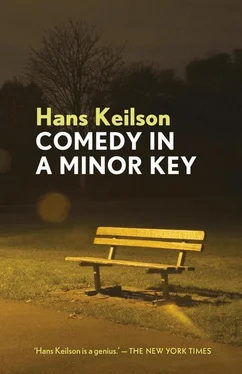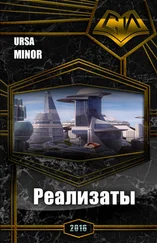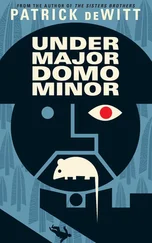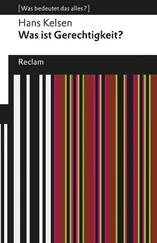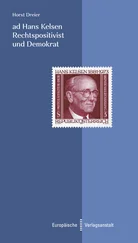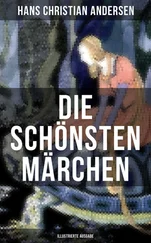“What was his real name?” The doctor asked.
Isolated gunshots still in the distance… the same as in the beginning, a humming sound from the house next door, or from the basement…
Wim shrugged his shoulders. Even now he didn’t reveal the name. It remained a secret. “We called him Nico.”
“Nico? Nicodemus? — Wasn’t he the only one of the ancient rabbis who…”
“Yes, yes,” Wim said. “Ours sold perfume.”
The doctor made a wry face.
“A perfume salesman? Yes, well, we’ll all need a little prettying up after the war. It’s not the worst thing. Poor Nico!” His words sounded bitter, almost as if reproaching Nico for deserting them.
Wim pressed his lips together and audibly expelled the air through his nose with a quick jerk of his throat. “Hmmph.” A bit embarrassed, they stared at the bed.
Marie was reminded, by the fact that he had been lying there motionless the whole time in the same mute position, that he was dead. A dead man lay in her house, a house in which no new life had yet been born. Over and over again this thought came into her mind. The doctor started to pump the dynamo on his pocket flashlight with his thumb, so that a delicate whirring sound filled the death chamber. The stubby bulb’s bright light meandered across the unresponsive face and lifeless hands on the blanket and highlighted individual parts of the dead body more clearly.
“How long was he here with you?”
“Almost a year, he came in April.”
“Such a long time? — And how was it? Was he difficult?”
“Not at all,” Marie interjected. She followed the men’s conversation only insofar as it ran parallel with her own thoughts. “Not at all.”
“I see. It isn’t always that way. Did you know him from before?”
“No,” Wim responded.
“Things happen sometimes, with these accidental combinations… We’re all only human, and it lasts so long.”
“I know,” Wim answered calmly. “Not him. It went well. It’s such a shame, about Nico.”
Silence.
“Yes, well, he can’t stay here.” The doctor interrupted their silence and stepped decisively back from the bed into the middle of the room. The husband and wife followed him.
“Of course not. But how—?” Marie asked, so soundlessly that no one could hear her.
“Maybe someone could try to contact the police,” Wim said. He looked directly at the doctor. He had been thinking this for a long time.
“The police, Wim?”
“Yes—”
He avoided looking at her. Thoughts whirled in his head like the airplanes arriving from unknown distances.
“Wim!”
“The police will get him in any case,” the doctor said airily, and he rubbed his eyelids with his right hand. “But you have to stay out of it. Then they can make their arrangements with a clear conscience.”
“What arrangements, Doctor?”
“Burying him, of course. — But now it’s still too bright. I’ll come back around ten. It’s lucky that it’s a new moon. I’ll work everything out with your husband.”
Wim nodded. He had understood what the doctor meant by this talk of the new moon and it still being too bright outside. Of course, so that’s what you did when this happened. It wasn’t too bad. He’d be careful breaking it to Marie. She wouldn’t sleep a wink tonight. Still, what a strange thought, that while you are lying in your warm bed the other man, even if he’s dead — or rather, because he’s dead…
Before the doctor left he went up to Marie, took her right hand in his hands, and said in a solemn voice, “There is no one here to offer condolences to. That’s often how it turns out. But still, it must be a loss for you. In fact, you probably have the most difficult burden — problem,” he corrected himself.
Marie looked at him calmly. Her face was serious and she thought about what he had said. A problem, yes, but she had happily taken it upon herself. It seemed to her that she had learned something in the process.
“But it’s not as dangerous as you think,” the doctor continued, because he had the impression that they were still a little frightened. “There are a lot of other things that could have happened. Never mind infectious diseases that we have to report — diphtheria, a child with polio. That is very, very unpleasant. But there are also children born in circumstances like this…”
“That’s impossible,” Marie stammered. It was horrible to think of. Children? Did people have no sense of responsibility?
“Really, it’s true,” the doctor confirmed, having guessed Marie’s thoughts. “I have personally brought quite a few into the world. Four little Jewish babies. Strong boys. They scream just like every child screams when it comes into the world. But that’s the danger! Someone could hear them! The neighbors! In childless marriages, after twelve, fourteen barren years, suddenly there are children born. Naturally they are sent off to other families.”
Wim and Marie exchanged a glance and smiled. It might be serious, even slightly sad, but they had to laugh. What couldn’t you find in this world! But the doctor was right, children are born everywhere, in bomb shelters, during air raids, and often quicker than you might like. Everywhere, in the grip of death, life goes on too. And in terms of their situation here, it was better to have a dead man in the bed than a woman with a screaming newborn. He was right about that too.
“I have to go now,” the doctor said. Wim walked him downstairs.
When he came back upstairs, Marie was standing at the end of the bed by the dead man’s feet. He went over to her and together they looked at Nico in silence.
“Wim, do you actually know how Jews bury their dead?”
“What do you mean?”
“Well, they have rules and customs for everything, they must have some for when someone dies.” Behind her curiosity there was a burning pain that cried out for more consolation than it was possible to give.
“Of course. I read something about it once.” He spoke quietly, whispering, as though it wasn’t proper to speak out loud, in front of a dead man, about the way you propose to bury him. Especially since he hadn’t expressed any preference himself. Wim considered for a moment, then said, “I think they wash him and put him in a burial cloth with no seams.”
“Well, we could wash him too.”
“Oh, Marie, let’s let it go. Nico didn’t follow the laws anymore. He won’t hold it against us.”
“We don’t have a shroud, and I’m sure he didn’t have one for himself. Who goes into hiding with a shroud? Or should I look and see?”
“And then they sit with him all night, say their prayers by candlelight — yes, I think they call it sitting shibbe or something like that.”
“Hmm. Well, we can’t do any of that.”
“Beforehand they lay him, when he’s died, on the ground, wrapped in a sheet.”
“Maybe that, Wim?”
“Yes, Marie, we’ll do that.”
She took a step back. “Come, I’ll help.”
“Not now. Let’s wait, the doctor is coming back around ten o’clock. He’ll help me.”
“He’s coming again?”
“It’s too hard to carry a dead body, you know.”
“To carry?” She gestured down with her hand. “Here, on the floor?”
He hesitated. “Not here, Marie.”
He raised his hand and gestured in the direction of the window. “We, the doctor and I, will lay him on the ground — in the park. It’s a new moon. Under a bench. No one will see us.”
“Wim.”
A quiet crying rose within her and shook her body with delicate shakes. “No, oh no — yes — what else can we do?… Nico, Nico…” She held her hand over her eyes. Wim led her out of the room and down the stairs.
Читать дальше
